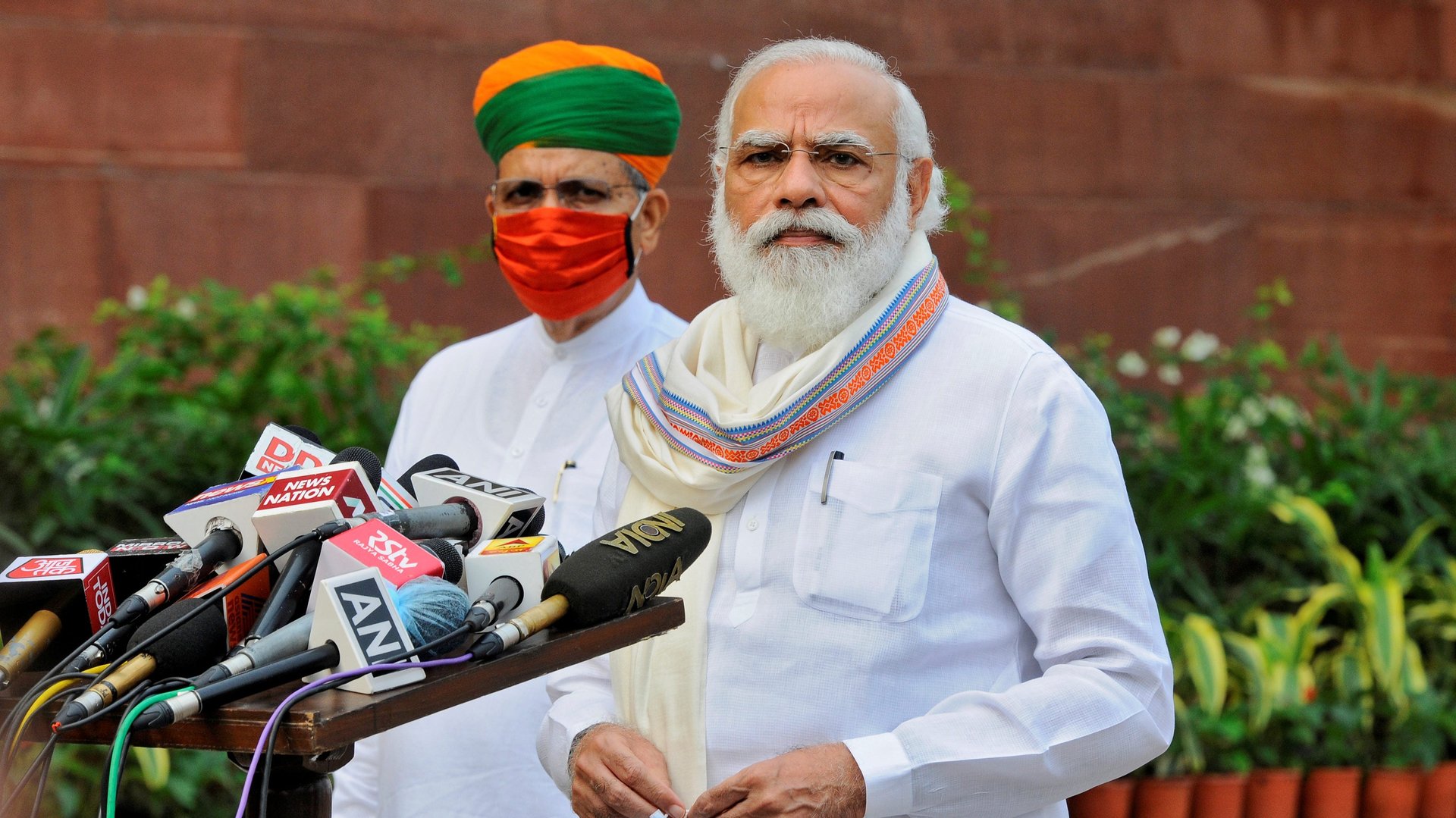A list of things the Modi government says it has no data on
As India’s parliament resumed its monsoon session on Sept. 14, the central government was faced with a volley of questions about the impact of the Covid-19 pandemic on various aspects of the economy. But the answers were few.


As India’s parliament resumed its monsoon session on Sept. 14, the central government was faced with a volley of questions about the impact of the Covid-19 pandemic on various aspects of the economy. But the answers were few.
For starters, on the first day of parliament, the government said it had maintained no data on the number of migrants who lost their lives because of the pandemic-related lockdown.
This is after the evidently severe impact of Covid-19 on the lives of migrant workers. When India’s coronavirus lockdown was announced on March 24, millions of hapless migrant workers had no means of going back to their hometowns and villages. They began walking home, and hundreds died in the two-month period.
Not only while walking home, but at least 80 migrant workers also died on the special train service that the government had started for stranded labourers. According to a right to information query filed by The Wire, this data was available with the central government.
In a related question, the government was asked how many migrants lost their jobs, to which too the government said it had no data. According to a World Bank report, 40 million migrant jobs were lost in India in April. On prime minister Narendra Modi’s birthday yesterday (Sept. 17), his detractors observed the event as National Unemployment Day.
The only data the government shared in these questions was with regard to how many migrants were displaced during the Covid-19 lockdown. According to its estimates, 10 million migrant workers returned home since March 25.
No country for frontline Covid-19 workers
India’s raging pandemic—which has crossed 5 million positive cases—also led to the death of various frontline healthcare workers. But according to the government, it has no data on this matter either.
“Health is a state subject. Such data is not maintained at central level by ministry of health and family welfare,” India’s minister of health Harsh Vardhan said on Sept. 15 in a written reply in parliament.
The Indian Medical Association, infuriated by this reply, released a list of 382 healthcare workers who succumbed to Covid-19. “This amounts to (an) abdication of duty and abandonment of the national heroes who have stood up for our people,” the IMA said in its statement. “IMA finds it strange that after having formulated an unfriendly partial insurance scheme for the bereaved families to struggle with the ignominy of the government disowning them altogether stares at them.”
Similarly, the government was asked about data on police personnel fatalities due to the pandemic. While the junior minister for home affairs shared a list of 100 deaths among centralised armed police forces, he said that police, too, is a state subject. “The data in respect of Police personnel who died due to Covid-19 across the country is not maintained centrally,” the written reply (pdf) read.
The coronavirus crisis aside, the government seems to be missing other crucial data, too.
The curious cases of China and Kashmir
The other crisis brewing in India is along the perceived border with China, where both countries have claimed an aggressive military stance by the other since May. While defense minister Rajnath Singh acknowledged these skirmishes and spoke at length in both houses of parliament, his ministry denies any infiltration along the border with China.
“No infiltration has been reported along Indo-China border during last six months,” the reply in the upper house of parliament read.
This is particularly curious considering reports that the Chinese army took over territory earlier patrolled and controlled by India.
Another curious piece of missing data is about politicians in the erstwhile state of Jammu & Kashmir. The state lost its special status after Article 370, a constitutional provision, was revoked by the Modi government on Aug. 5, 2019. Since then, it took several Kashmiri leaders in detention and kept them under house arrest, including former chief ministers Mehbooba Mufti, Omar Abdullah, and Farooq Abdullah.
While Omar and Farooq Abdullah are no longer under house arrest, Mufti is still not free. The Modi government, though, has said, “No political leader is under house arrest in the union territory of J&K.”